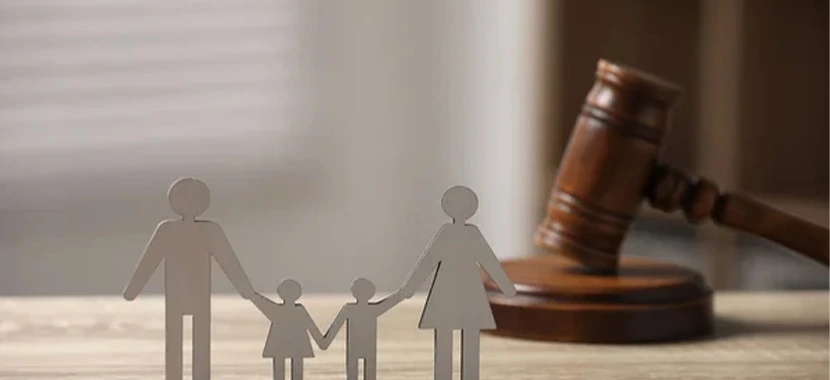Life can throw unexpected situations our way. Whether it’s a medical emergency, a business trip, or any other reason that requires you to step away temporarily, arranging proper care for your children is the top priority. In Florida, it’s possible to establish temporary guardianship without the hassle, expense, or stress of going to court. Let’s walk through how this process works and what you need to know to do it correctly.
At the Law Office of Cameron H.P. White, P.A., we know that making decisions about your child’s care is never easy. Our goal is to help you understand the process and provide the tools you need to make informed decisions. With the right approach, you can ensure your child’s safety and well-being without unnecessary complications.
Florida’s Power of Attorney for Minor Children
One of the simplest ways to arrange temporary guardianship in Florida is through a Power of Attorney for Minor Children. This document allows parents to designate another adult to make decisions on behalf of their child for a specified period. It’s a straightforward process that avoids court involvement while providing clarity and peace of mind.
What is a Power of Attorney for Minor Children?
A Power of Attorney (POA) for Minor Children is a legal document that gives a trusted adult temporary guardianship over your child. This might be needed for short-term situations, such as:
- You’re undergoing a medical procedure.
- You’re traveling for work or personal reasons.
- You’re dealing with an unexpected crisis and need support.
This document ensures that the designated guardian can make important decisions related to your child’s daily care, education, and even medical treatment.
What Makes a POA Legally Valid in Florida?
To create a valid Power of Attorney for Minor Children in Florida, you’ll need to follow a few essential steps:
- Written Format: The POA must be in writing.
- Parent Signatures: Both parents (if available) should sign the document.
- Specific Details: Clearly outline the scope of authority, such as:
- Duration of guardianship.
- Healthcare decisions the guardian can make.
- School-related responsibilities.
- Notarization: Have the document notarized to make it legally enforceable.
Example: Let’s say you’re preparing for a scheduled surgery and will need two weeks to recover. You can draft a POA specifying who will care for your child, what responsibilities they’ll handle, and when the arrangement ends. This removes uncertainty and ensures your child is in safe hands.
Notarization and Witnesses
A Power of Attorney isn’t just a piece of paper—it’s a binding legal agreement. To ensure its validity, Florida law requires notarization and, in some cases, witnesses.
Why is Notarization Important?
Notarization helps verify the authenticity of the document. By having the POA notarized, you’re confirming that:
- The signatures are genuine.
- The individuals signing the document understand its purpose and implications.
Are Witnesses Needed?
In Florida, witnesses aren’t always required for a Power of Attorney, but it’s a good idea to include them. Having witnesses can:
- Add an extra layer of legal protection.
- Reduce the risk of disputes about the document’s validity.
Finding a Notary in Florida
Notaries are widely available and can often be found at:
- Banks.
- Shipping or mailing centers (e.g., UPS Store).
- Local government offices.
- Mobile notary services that come to your location.
Taking these steps ensures that your Power of Attorney holds up under scrutiny and is ready for use when needed.
Limitations and Considerations
While a Power of Attorney is a valuable tool, it’s not a one-size-fits-all solution. There are situations where it either might not be the right option or additional steps may be needed.
When a POA Might Not Be Enough
Here are some scenarios where a Power of Attorney may fall short:
- Long-Term Needs: If guardianship is needed for an extended period, a court order may be required.
- Institutional Requirements: Some schools, hospitals, or organizations might not accept a POA and could insist on a court-appointed guardian.
- Custody Disputes: If there’s any potential conflict over custody, a POA may not provide sufficient legal standing.
Example: Suppose your child has complex medical needs requiring frequent hospital visits. In this case, court-ordered guardianship might be a better option to ensure comprehensive legal authority.
When to Consult an Attorney
While it’s possible to draft a Power of Attorney on your own, there are several benefits to consulting a legal professional. An attorney can:
- Ensure the document is tailored to your situation.
- Help you address any specific concerns or challenges.
- Provide guidance in situations where court involvement might be necessary.
Avoiding Common Pitfalls
Mistakes in drafting a POA can lead to complications down the line. Some common errors include:
- Vague language that leaves room for misinterpretation.
- Failing to address critical issues, such as medical decision-making authority.
- Overlooking notarization or other formalities.
Our Role: At the Law Office of Cameron H.P. White, P.A., we’re here to help you get it right. We’ll work closely with you to create a clear, enforceable document that provides peace of mind for you and your family.
Need Help with Temporary Guardianship in Florida?
Temporary guardianship doesn’t have to be stressful or overwhelming. With the right plan in place, you can focus on what matters most—knowing your child is cared for in your absence.
At the Law Office of Cameron H.P. White, P.A., we’re dedicated to helping families like yours find practical, effective solutions. Call us at 407-792-6011 or visit our Contact Us page today for a confidential consultation. We’ll guide you through the process, answer your questions, and ensure your child’s well-being is protected every step of the way.
Let us help you take the next step with confidence and peace of mind.

